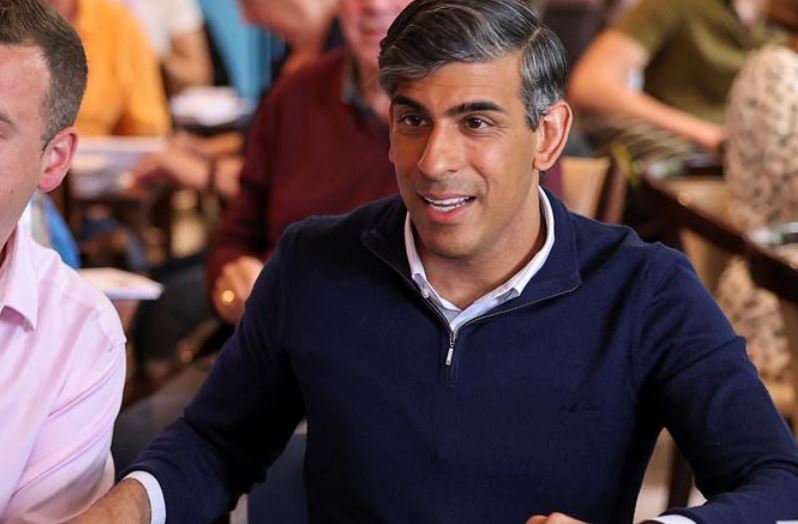As the UK election campaign enters its final stages, Conservative Prime Minister Rishi Sunak finds himself grappling with the looming threat of a decisive defeat at the hands of the Labour Party. Despite mounting challenges, Sunak remains resolute, continuing to canvass vigorously for every voter’s support.
Labour’s Dominance Looms Large
Labour, buoyed by consistent polling leads suggesting a substantial majority, has maintained a relentless campaign tempo across the nation. Keir Starmer, positioned to potentially assume the premiership, has underscored a platform of transformative change, resonating with a significant portion of the electorate disenchanted by the current government’s policies.
Challenges Amid Economic Realities
Under Sunak’s tenure, the UK has experienced its highest tax burden in seven decades, a focal point of Labour’s campaign rhetoric. Critics argue that Labour’s projected tax policies could exacerbate economic pressures, yet Sunak’s strategy hinges on highlighting potential risks of a unchecked Labour majority, framing it as a threat to economic stability.
Campaign Dynamics and Strategic Moves
Sunak’s campaign strategy pivots on personal outreach, visiting industrial sites and supermarkets in a bid to connect with ordinary voters. Despite personal risks, including potential loss of his own parliamentary seat, Sunak remains steadfast in his efforts to sway undecided voters amidst a backdrop of economic uncertainty and public service challenges.
Polling and Projections
Recent polling, employing advanced statistical methodologies like multi-level regression and post-stratification (MRP), foresees a stark outcome: a potential landslide victory for Labour reminiscent of historic electoral shifts. Such projections underscore the uphill battle facing Sunak and his Conservative Party as they struggle to retain relevance in a rapidly evolving political landscape.
Regional Dynamics and Coalition Implications
Beyond the traditional Labour-Conservative rivalry, smaller parties like the Liberal Democrats and the Scottish National Party (SNP) also play pivotal roles. Their influence could determine post-election coalition formations and parliamentary dynamics, adding layers of complexity to an already contentious electoral landscape.
Ethnic Diversity and Political Representation
This election cycle could mark a milestone with the highest representation of ethnic minorities in Parliament’s history. Analysts predict a notable increase in MPs of Indian descent, reflecting Britain’s evolving demographic and political landscape, though challenges of true inclusivity and policy impact remain significant considerations.
Conclusion: The Final Push
As the campaign draws to a close, both major parties intensify efforts to mobilize their bases and sway undecided voters. Sunak’s determination to defy odds and Labour’s momentum towards a potential transformative mandate set the stage for a consequential electoral outcome with far-reaching implications for the UK’s political and economic future.
Summary Tables:
Key Learning Points:
- Impact of economic policies and taxation debates on electoral outcomes.
- Role of advanced polling techniques in predicting electoral trends.
- Significance of ethnic diversity in shaping contemporary British politics.
Soumya Smruti Sahoo is a seasoned journalist with extensive experience in both international and Indian news writing. With a sharp analytical mind and a dedication to uncovering the truth, Soumya has built a reputation for delivering in-depth, well-researched articles that provide readers with a clear understanding of complex global and domestic issues. Her work reflects a deep commitment to journalistic integrity, making her a trusted source for accurate and insightful news coverage.



